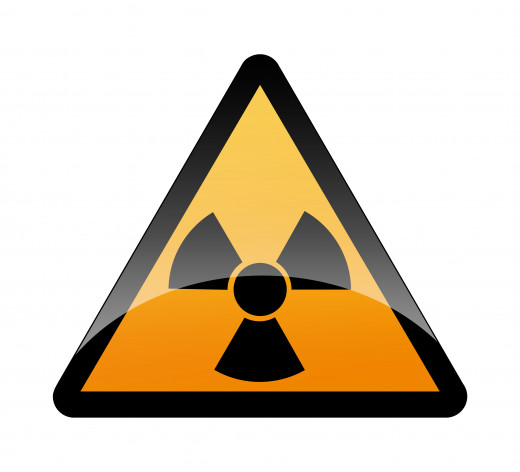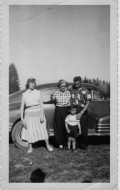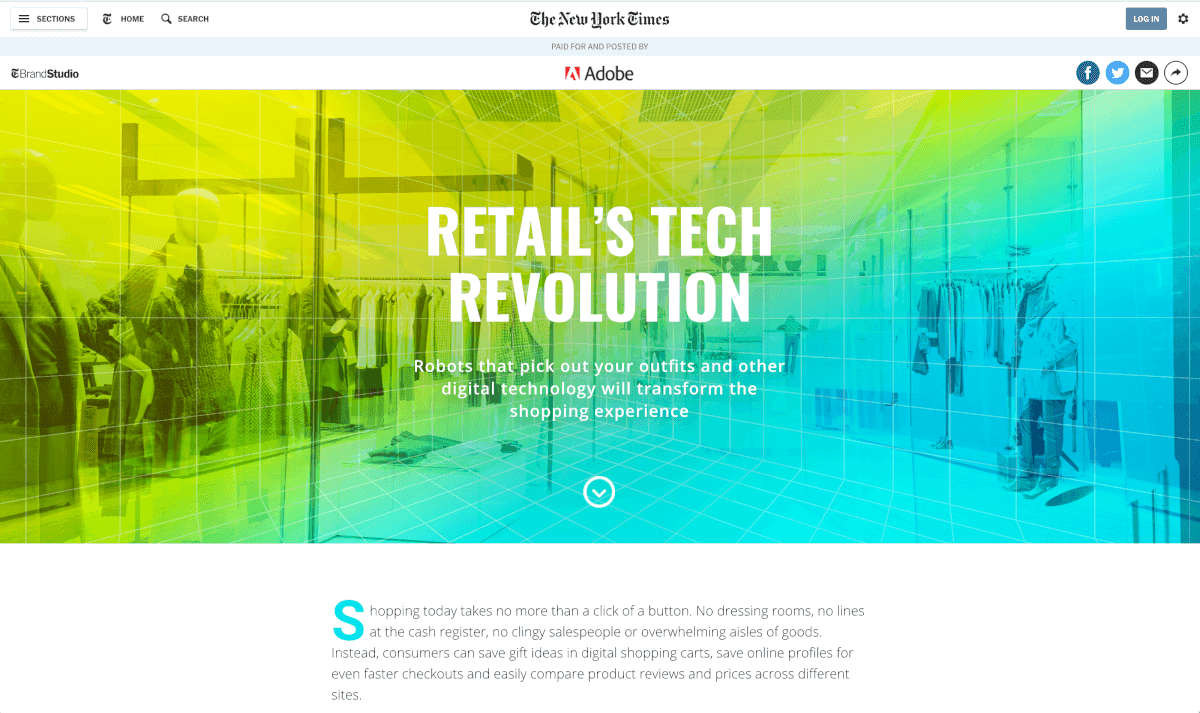Google True Story About Online Advertising

Pay Per Click: The Deadly Monopoly
When I was a child, scary stories never bothered me. I always knew that they were either made up or exaggerated, so I just viewed them as entertainment. Every now and again, I come across a story, and even though it does not involve goblins, demons or witches, it scares the living daylights out of me, because it's true.
So gather 'round, dim the lights, and prepare yourself for a story that will affect the way you view the world we live in. I take no pleasure in writing this article, but since I'm a reporter of sorts, it's my obligation to present the public with the truth, no matter how disturbing it may be. Its content is derived from the dealings of one man with one pay-per-click company, and how that pay-per-click company uses their vast market share to force small companies or newly started businesses into a 'lesser of two evils' option: Either use them and pay the price, or compete in an internet driven world without the tool of internet advertising. I've written articles in the past, involving the pitfalls of using PPC (pay-per-click) companies, and the following, is a journal of correspondence with one such company.
I want to add the same disclaimer that I did in my first article, being that I bear no ill will towards any specific pay-per-click advertiser, but am serving merely as a vessel to deliver what I consider meaningful insight to the American public. The following is direct correspondence between a pay-per-click advertiser and a representative for a large pay-per-click advertising company. For anonymity's sake, we will call the advertiser [Dave] and the pay-per-click company [Bugle]. Although most writers use hyperbole, in order to punch home a certain point of view, the following correspondence is virtually untouched. The only editing I have performed is to remove portions of redundant content from the [Bugle] representative, and editorialize when necessary.
Edit. Our journey begins with [Dave] asking for a credit for clicks that did not report a conversion. A "conversion" means that the clicker viewed [Dave's] webpage.
[Dave] - "Dear [Bugle] Representative, I was charged for two clicks on 10/18 , and I did not get a conversion for either of these clicks. My entire website is just the landing page, and after discussing it in length with [Bugle] Analytics, it was determined that whoever clicked on those ads, did not wait for the website to load before they backed out of it, subsequently not registering a conversion.This was the conclusion made by [Bugle] Analytics and, according to them, it was the most probable case scenario. My webpage load speed is at the top of the mark for all desktop and laptop computers, and my ads are not shown to mobile phones, i-phones, smart phones, i-pads, tablets, androids, etc. So, whoever clicked on those ads, did so without the intent of viewing my website, since they did not wait half a second for it to load. By definition, this would make it a fraudulent click.Therefore, I'm sure that you should have no problem with crediting me for said clicks. After all, [Bugle's] goal is to bring information to the public as quickly and efficiently as possible. [Bugle] should not be used as a vehicle for others to cost my business money in a fraudulent manner. I hope that my meaning has been made clear to you."
[Bugle] - "Hi [Dave], Apologies for the delay in getting back to you. Do be assured that we take the instances of any invalid clicks very seriously and they are filtered out before a user is charged for them. I checked your account and see that for all time date range, 1 click has been filtered out. For October 20, there has been one click and there is one conversion as well. For October 21, there have been 3 clicks and 3 conversions recorded. [Dave], for the one invalid click that we found, you have not been charged. We do keep the security and safety always in mind. You have been charged for only for valid clicks. And, yes, if a user does not let the page load, if the tracking code is not executed, though there will be a click, there would not be a visit or a conversion. But, a visit not getting recorded or a conversion not getting recorded does not mean that the user did not intend to load the page- it could be that they clicked on the back button in error or java script has been disabled or any other reason.Please let me know if the above has helped address your concerns. Thanks!"

Edit. That was the representative's word for word response to [Dave's] word for word inquiry. The representative did not even mention the activity on 10/18, which was the date that the advertiser was requesting to be examined. This may seem like a small thing, but it speaks volumes. There's only one legitimate reason that the representative would write this response. He/she didn't pay enough attention while reading the inquiry and got the dates mixed up. Another possible scenario is that the representative read it correctly and was just trying to inundate [Dave] with meaningless drivel in the hopes that he would just go away, but I'll give [Bugle] the benefit of the doubt.
[Dave] - " I appreciate your message, but note that on 10/18 there were three charged clicks and only one conversion. I understand that there are other remote possibilities for someone to click on my ad and not wait for it to load, but it's obvious to me and any other reasonable person, that if someone clicks on an ad and then backs out by mistake or has java script issues or their pet jumps on their keyboard or they spill hot coffee on their lap or there's an earthquake or whatever...then the advertiser should not have to pay under said circumstances. The reason for using pay-per-click-advertising is so that when someone clicks on your ad, they view the landing page attached to that ad. If they view the landing page and decide that they don't want to use my business, that's fine. But if they click on my ad and NOT view my landing page for whatever reason, [Bugle] should not charge me for that click. I don't view this as a personal matter, it's purely business. [Bugle] can choose to make money however they feel. But, when a company prides itself as a vehicle for bringing information to people quickly and efficiently, and then charges their advertisers even when their websites are not viewed, there seems to be discrepancy there. I think that everyone who is using pay-per-click or is contemplating using pay-per-click, should be aware of this discrepancy."
Edit. When the representative figures out that [Dave] is not going away, he/she more clearly states how a non-conversion doesn't necessarily mean that the clicker didn't view the landing page.
[Bugle] - "You have mentioned that 'if they view the landing page and decide that they don't want to use my business, that's fine. But if they click on my ad and NOT view my landing page for whatever reason, [Bugle] should not charge me for that click'- per logic, if the user clicked on the ad to view the landing page, to go to the site, they would wait for the page to load. But, for example, if that one user had disabled java script, then even when they did see the landing page, since the conversion code was not executed, the conversion would not be recorded.Therefore, a click not leading to a conversion does not mean that the click was invalid or that the user did not see the landing page. It simply means that the conversion code was not executed. I really hope you understand that about us, about [Bugle]. Because, when you do all you can but still are doubted, it really defeats the purpose of being the good guy."
[Dave] - "So, if I understand you correctly, someone can click on my add, view my landing page, and because their java script is disabled, it will not register as a conversion. Okay, I can buy that scenario. But I'll be honest with you...I am very suspicious of my competitors clicking on me with the sole purpose of costing me money. And I do not have the confidence that you have in the diligence of you invalid click team. I guess I'll keep the status quo and let future experience dictate whether [Bugle] works for me or not. Thank you for your insight, and I will stay in touch."
[Bugle] - "I really appreciate your continued cooperation. [Dave], I cannot emphasize enough on how important the advertiser safety is for us. And, if we detect competition actually clicking on the ads to use up the budget, we would filter such clicks."
Edit. It seems as if an understanding has been met, but 'nothing gold can last.' A few days passed and there were more charged clicks with no conversions. [Dave] writes back.
[Dave] - "I hope that you have our prior correspondences available, because my next question refers to them. You explained to me that if the user's java script was disabled, it would register as a click but not a conversion, even if the user in fact waited for my site to load. So if [Bugle] shows a click without a conversion, then they are saying that the user's java script was disabled OR that the user, for some reason, did not wait for the landing page to load. If the user's java script was disabled, and the user waited for the landing page to load, then [Bugle] would be fulfilling their end of the job, and I should then pay for the click. Fair enough. So, logic dictates that if the user was java script enabled, but did not wait for the page to load, then I should not be charged for the click, because for whatever reason, the customer never viewed my landing page, and I use [Bugle] in order for my landing page to be viewed by whoever clicks on it. Right? I happen to employ several tracking services for the websites that I advertise on [Bugle], and after lengthy correspondence with them, they assured me that the only way that they would not show a user's visit, is if the user did not allow the landing page to load, regardless of whether the user's java script was disabled or not. Here's my question: If [Bugle] charges me for a click without a conversion registering, and I provide reliable logs from my tracking services illustrating that no visit occurred from that click, would that prove to [Bugle] that the user did not wait for the landing page to load?"
Edit. [Dave] obviously doesn't buy [Bugle's] "java disabled" excuse, because the information that he is getting from his tracking services lends itself to the argument that the clickers are simply not waiting for the webpage to load. The multiplicity for which this occurs only increases his suspicions.
[Bugle] - "You have mentioned '...logic dictates that if the user was java enabled, but did not wait for the page to load, then I should not be charged for the click, because for whatever reason, the customer never viewed my landing page, and I use [Bugle] in order for my landing page to be viewed by whoever clicks on it. Right?"- No, [Dave], even if java script was enabled and a conversion could get recorded, if the user did not wait for the page to load, for whatever reason, even then, since the click is valid, you would be charged. [Bugle] charges for clicks and no user behavior on the site. As long as the click was valid, there will be a charge for that click, irrespective of what the user did when they went to the site. With respect to other tracking devices, I'm sorry but we would not be able to take that as a basis for any discrepancy between clicks and/or conversions since third party tracking devices could define a visit differently from [Bugle] does. Or, there could be several reasons why clicks data in [Bugle] and visits from the third party tracking may not be the same and there are discrepancies. Therefore, [Bugle] will charge only for valid clicks, irrespective of the user behavior on the site and you would not be charged per conversions or visits but per the clicks. I hope this has helped address your concerns."
Edit. This representative states quite clearly that if a user clicks on an advertiser's ad, thus causing a charge to the advertiser, but does not wait for the webpage to load (did I mention the page load speed for the average browser to download the average website is 0.5 seconds), [Bugle] will not consider that as an invalid click, and will charge the advertiser for that click.
[Dave] - "I'm discouraged after reading your last message. You mentioned in a prior message, "I really hope you understand that about us, about [Bugle]. Because, when you do all you can but still are doubted, it really defeats the purpose of being the good guy." How can [Bugle] call themselves the good guy, when you admit that if someone clicks on my ad and does not wait for my landing page to load (therefore never viewing my website), that you would not consider it an invalid click and then charge me for it.That's not being the good guy at all. About a year ago, I didn't have conversion tracking, but I still had my third party tracking services, and I saw that 90% of my paid [Bugle] visits were zero seconds in length.I showed [Bugle] the logs from those tracking services and they told me that they couldn't rely on third party information (like you said) to make any determination regarding invalid clicks. They also mentioned (as you did), that they don't get involved with user activity after the click. I asked them if there was anything that I could do to show them that 90% of my clicks were invalid, and they said that I should install [Bugle] Conversion tracking. Therefore they would be able to see reliable user activity after the click, using a [Bugle] (non-third party) tool. So, for this new business, I installed Analytics and Conversion tracking from the very beginning, thinking that I would be able to show [Bugle] (using their own tools) all suspicious clicking activity. And now, I hear yet another scenario where I would still be charged for clicks....The user clicks on my ad, backs out before it loads, clicks on another competitor's ad, backs out before it loads, and makes a 5-minute loop clicking on and backing out of every competitor's ad on the first page of his search, before returning to my ad and clicking and backing out of it again. No conversions, no IP addresses to exclude because tracking services show no visit unless the webpage loads, and my [Bugle] budget exhausted with nothing in return. Wow, that's a system that will surely do away with any small business trying to advertise on [Bugle]. And, [Bugle] gets richer in the process. If you still consider yourselves the good guy, then your moral compass is severely out of whack. If you think that I'm exaggerating about my history in dealing with invalid clicks, I implore you to set up an [Bugle] account in a competitive industry (lawyer, insurance, locksmith, etc.) and see for yourself."
(No further correspondence)

I published this correspondence because it is an honest, provable account, and I stand by its veracity. It illustrates that some of the largest wealthiest companies in the world can still manage to forget where they came from and how they got there. Since I am a reporter of sorts, I am obligated to show the public the truth, nothing more and nothing less. Here is one advertiser who got tired of taking punch after punch, kick after kick, without any measure of recourse. One man who stood up for himself by questioning the integrity of one of the largest internet companies in the world, and then stood up for every other small business owner, by having his plight made public. I hope that I have done my job, by presenting his perspective in a way for which you can appreciate.
© 2012 Daniel Marcosi








